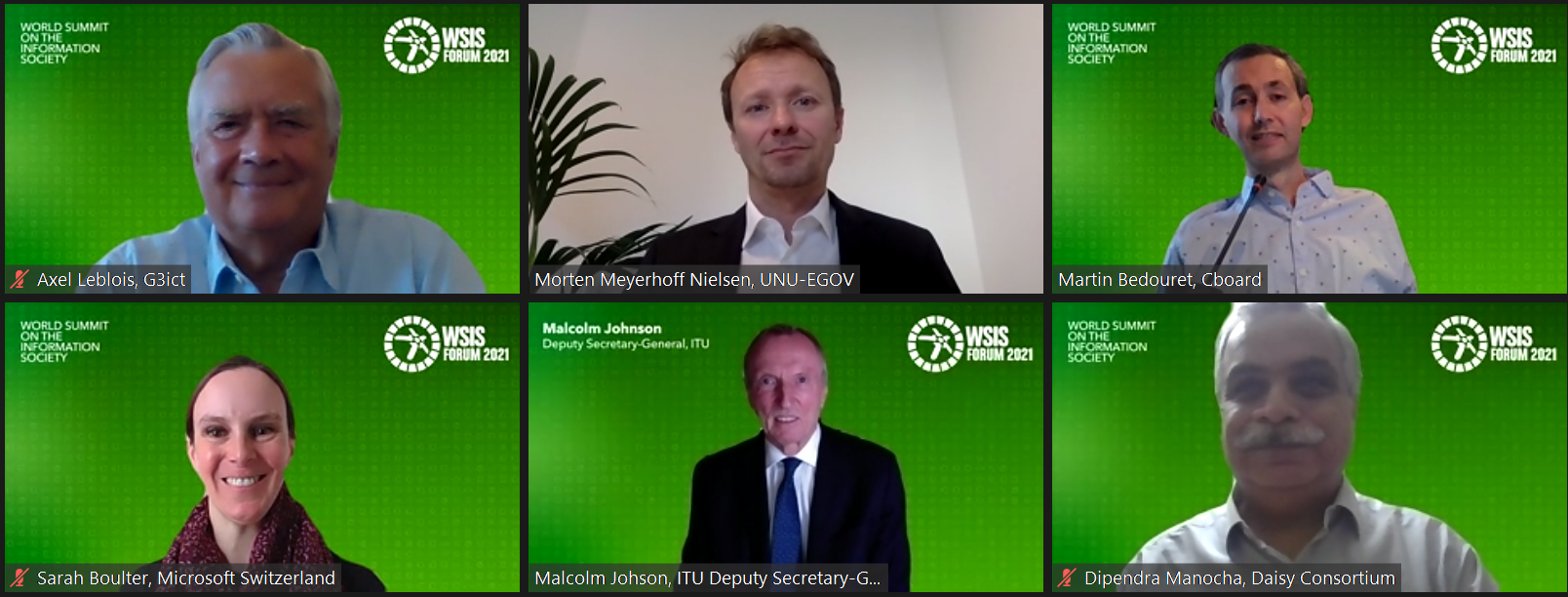Opening of the ICTs and Accessibility for Persons with Disabilities and Specific Needs special track
WSIS
Session 126
It is crucial that persons with disabilities and specific needs can fully access Information and Communication Technologies (ICTs). The opening of ICTs and Accessibility for Persons with Disabilities and Specific Needs special track aims to inform and observe how ICTs can help people living with disabilities and specific needs whilst focusing on progressing towards the UN Sustainable Development Goals. This session will also look at ICT and accessibility, public awareness towards accessibility to ICTs, initiatives and solutions addressing challenges faced by people with disabilities, the role of ICTs in the development of inclusive society, and the contribution of all stakeholders in making ICTs accessible to persons with disabilities and specific needs.
Captioning will be made available for the session using the following link:
http://streamtext.net/player?event=ITU-WSIS
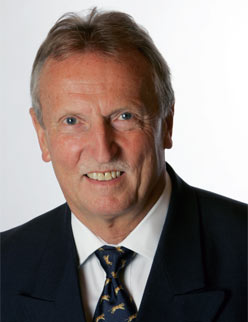
Mr Malcolm Johnson was re-elected ITU Deputy Secretary-General on 1 November 2018 for a second four-year term starting on 1 January 2019.
During his first term as Deputy Secretary-General, he implemented many efficiency measures releasing more resources to key ITU activities and delivered balanced budgets. He led the Management Board for ITU's new headquarters building from initiation to selection of architect and concept design. He has modernized ITU's physical security, improved internal coordination and streamlined and digitized many internal processes substantially reducing paper consumption. He facilitated more inclusive participation in ITU's work through the use of remote participation in meetings.
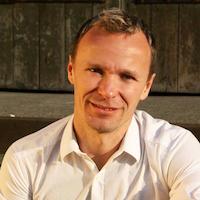
Dr. Morten Meyerhoff Nielsen, a EGOV Advisors at the United Nations University Operating Unit on Policy Drive Electronic Governance (UNU-EGOV). Morten’s core expertise matches the objective of the project.
For the last 17 years he has worked with digital transformation of the public sector including ICT facilitated administrative burden reduction, public service delivery, online usability and personalisation, public service delivery ecosystems and one-stop-portal design and usability tests. Other work includes development and evaluation of key strategies for eGovernment and digital transformation (Armenia, Albania, Faroe Islands, Dubai, Georgia, Indonesia, Latvia, Qatar, MENA region) and institutional frameworks and performance management (Armenia, Albania, Faroe Islands, Latvia, Oman, Uganda). Morten has as well expertise in data reuse, eID management and PKI infrastructure, the inclusivity and personalisation of eServices (Armenia, Denmark, Faroe Islands, Georgia, Latvia, US, Saudi Arabia).
In his research, he has focused on the analysis of global leaders (incl. Australia, Denmark, Estonia, South Korea, UK) approach to governance, cooperation, and compliance and applied this to his work with clients and partners (Armenia, Georgia, Oman, Saudi Arabia, UAE, Uganda, USA). Morten regularly conducts stakeholder engagement and consultation activities as part of our ongoing activities and projects. In addition, he regularly delivers executive and university course training on eGovernment issues, the digital transformation of service production and delivery, disruptive technologies, digital inclusion, webaccessibility, innovation, smart nations, cities and communities, engagement, and social media-related issues in Europe, the Middle East, and beyond.
Morten holds a degree in Economics and Political Science from South Africa and the UK and a Phd in Public Administration from Estonia in which he combines theory and practice in an analysis of technology-enabled public sector innovation and transformation. His Phd focuses on digitisation of public service delivery, governance and collaboration models and draws on the experiences of Denmark, Estonia, Faroe Islands, Georgia, Japan, and others incl. Australia, Saudi Arabia, South Korea, UAE, and the UK.
Past employment includes the Danish Agency for Digitisation, Danish Technological Institute, Policy and Business Analysis, European Institute of Public Administration, Centre for the Development of Enterprise, European Commission DG DEVL, and University of KwaZulu-Natal.
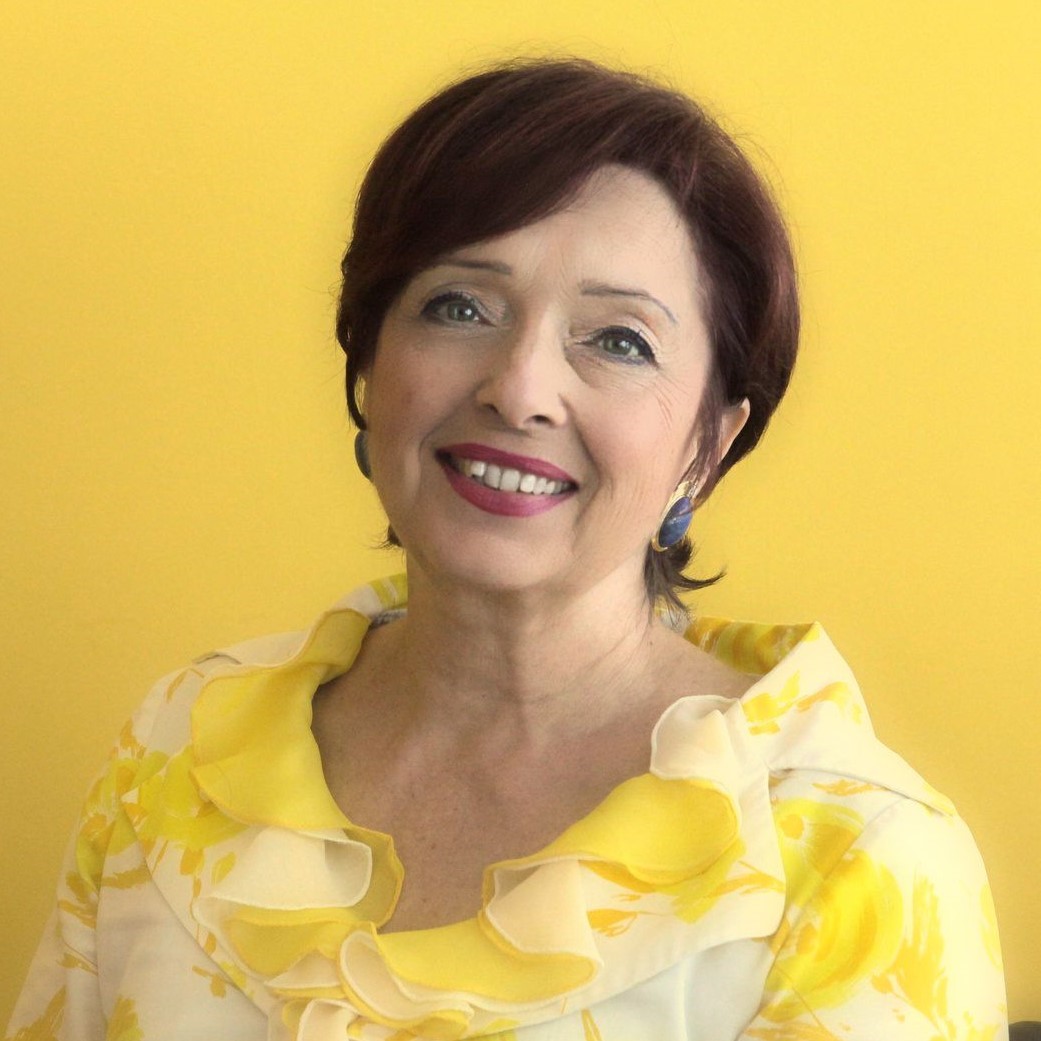
Ms. Daniela Bas, of Italian nationality, is the Director of the Division for Inclusive Social Development at the United Nations Department of Economic and Social Affairs since May 2011. Political scientist with a major in International Politics, she graduated Magna Cum Laude with a dissertation on “The elimination of architectural barriers and the employment of people with physical disabilities”. She is also a certified journalist and worked for major press, Radio and Television networks and is also a certified multicultural/life coach. Ms. Bas interest has always been people-centred in the various activities, associations, and professional roles she has held. In addition to her work at the United Nations from 1986 to 1995, she held managerial roles until 2000 in the private sector in Italy. From then until 2011, before joining UNDESA she was, inter alia, adviser for the Ministry of Foreign Affairs and for the Presidency of the Council of Ministers in Italy. On behalf of the Ministry of Foreign Affairs, she was Board Member of the EU Agency for Fundamental Rights and of the Committee to Promote non-Armed and non-Violent Civil Defense of the Presidency of the Council of Ministers. Ms Bas was also the special adviser to the Vice President of the European Commission (On. Frattini) on human rights, democracy, and social affairs.
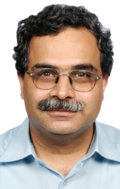
Dipendra Manocha is the lead of training and technical support and coordinates DAISY Consortium’s projects in developing countries. He is member of the Executive Committee of the World Blind Union and is managing trustee of the Saksham Trust. He is the elected president of the DAISY Forum of India which is a network of more than 74 organizations in India serving the persons with blindness and low vision. He also worked as consultant to the Delhi University for establishing the resource center for persons with disability.
After completion of post-graduation and research degree from Delhi University in 1992, he has been working for the mission of providing information and content in accessible format to persons with print disability. He worked as Director IT & Services at the National Association for the Blind, New Delhi, India from 1993 till July 2008
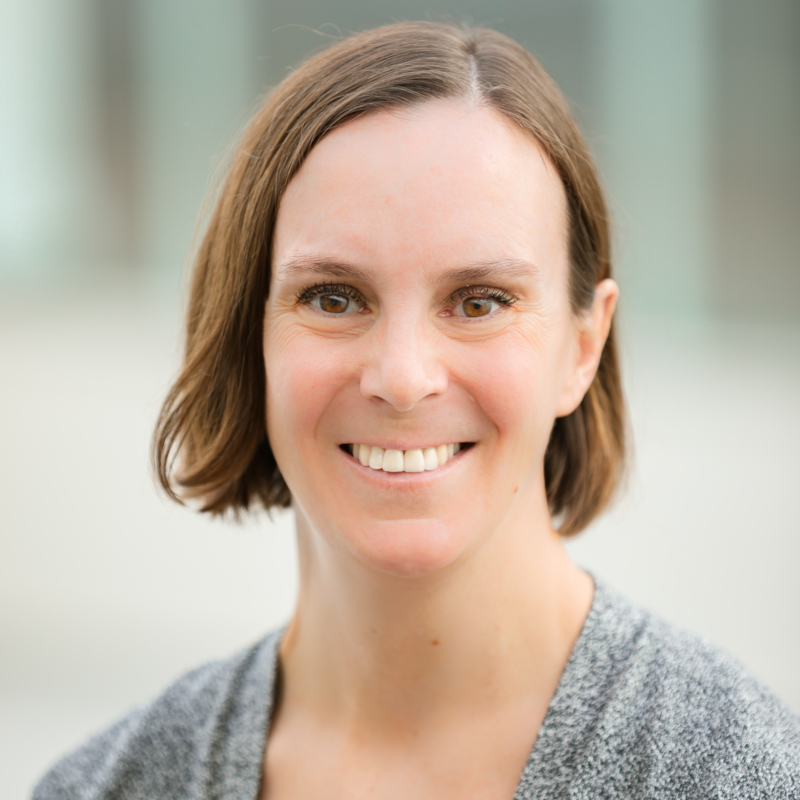
I am a Senior Consultant for Modern Service Management based in Switzerland, and since September 2020 I am a member of the Western Europe One Commercial Accessibility Program at Microsoft. I help our organization and customers drive accessibility through leveraging Microsoft Modern Work (M365) and Cloud technology. I am very interested in how the service lifecycle is evolving with the transition to the cloud, and how we will continue to make our technology accessible to as many people as possible. I value the trusted partnership with our customers and learning new things every day.
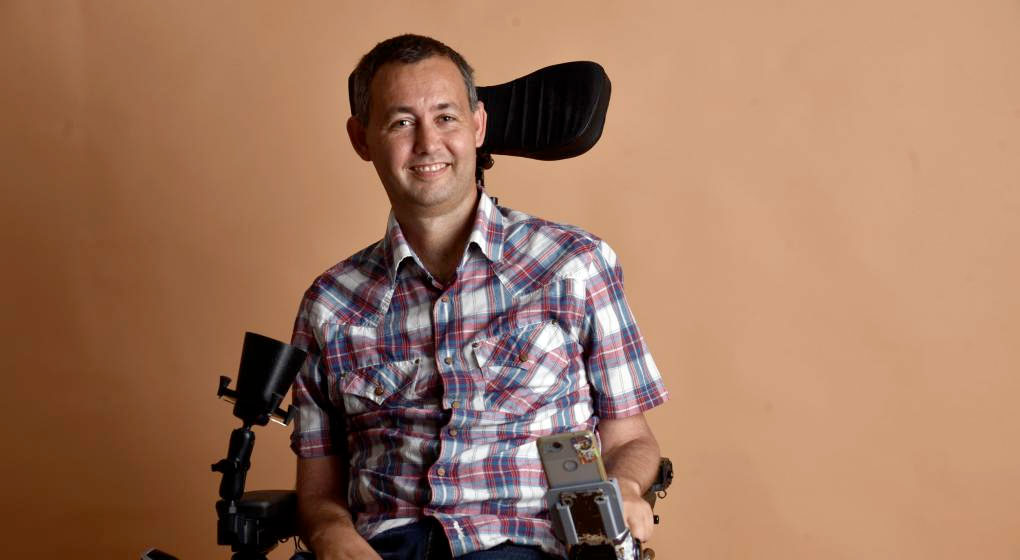
Martín Bedouret is an Electronic Engineer and works as a software developer and school teacher in Córdoba, Argentina. After being diagnosed with ALS in 2016, he began working on creating Cboard to provide a free and accessible AAC app for children and adults with speech and language impairments.
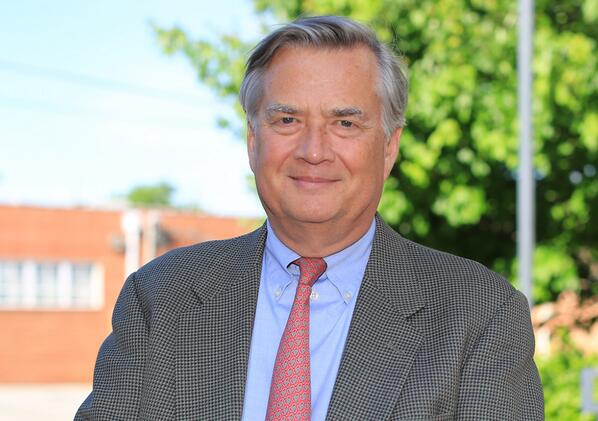
Axel Leblois spent over 20 years at the helm of information technology companies in the United States including as CEO of Computerworld Communications, CEO of IDC - International Data Corporation, Vice-Chairman of IDG - International Data Group, President of Bull HN Worldwide Information Systems - formerly Honeywell Information Systems, CEO of ExecuTrain and President of W2i, the Wireless Internet Institute. Axel Leblois served as a Senior Special Fellow of UNITAR, the United Nations Institute for Training and Research, and is a founding trustee of its North American affiliate CIFAL Atlanta. He currently serves on the Board of Directors of USICD, U.S. International Council on Disabilities, and GAATES, Global Alliance on Accessible Technologies and Environments. In addition, he serves on the Advisory Board of Mada, Qatar Assistive Technology Center, and on the Scientific Advisory Board of Cloud4all. He is an adjunct professor at OCAD University/Inclusive Design Institute. He served as chairman of the board of the Atlanta International School and is chairman of the board of CASIE, the Center for the Advancement and Study of International Education. He is a frequent speaker at conferences and seminars on ICT accessibility for persons with disabilities organized for policy makers, civil society and the private sector to foster collaboration among multiple stakeholders. In his capacity, Mr. Leblois oversees all the publishing, capacity building and advocacy activities of G3ict. Mr. Leblois holds an MBA from INSEAD and is a graduate of Sciences Po Paris.
-
 C1. The role of governments and all stakeholders in the promotion of ICTs for development
C1. The role of governments and all stakeholders in the promotion of ICTs for development
-
 C3. Access to information and knowledge
C3. Access to information and knowledge
-
 C4. Capacity building
C4. Capacity building
-
 C6. Enabling environment
C6. Enabling environment
-
 C10. Ethical dimensions of the Information Society
C10. Ethical dimensions of the Information Society
This session is connected to WSIS Action Lines
C1. The role of governments and all stakeholders in the promotion of ICTs for development
C3. Access to information and knowledge
C4. Capacity building
C6. Enabling environment
C10. Ethical dimensions of the Information Society
-
 Goal 3: Ensure healthy lives and promote well-being for all
Goal 3: Ensure healthy lives and promote well-being for all
-
 Goal 4: Ensure inclusive and equitable quality education and promote lifelong learning opportunities for all
Goal 4: Ensure inclusive and equitable quality education and promote lifelong learning opportunities for all
-
 Goal 8: Promote inclusive and sustainable economic growth, employment and decent work for all
Goal 8: Promote inclusive and sustainable economic growth, employment and decent work for all
-
 Goal 9: Build resilient infrastructure, promote sustainable industrialization and foster innovation
Goal 9: Build resilient infrastructure, promote sustainable industrialization and foster innovation
-
 Goal 10: Reduce inequality within and among countries
Goal 10: Reduce inequality within and among countries
-
 Goal 11: Make cities inclusive, safe, resilient and sustainable
Goal 11: Make cities inclusive, safe, resilient and sustainable
-
 Goal 16: Promote just, peaceful and inclusive societies
Goal 16: Promote just, peaceful and inclusive societies
This Session is linked to the following Sustainable Development Goals:
Goal 3: Ensure healthy lives and promote well-being for all
Goal 4: Ensure inclusive and equitable quality education and promote lifelong learning opportunities for all
Goal 8: Promote inclusive and sustainable economic growth, employment and decent work for all
Goal 9: Build resilient infrastructure, promote sustainable industrialization and foster innovation
Goal 10: Reduce inequality within and among countries
Goal 11: Make cities inclusive, safe, resilient and sustainable
Goal 16: Promote just, peaceful and inclusive societies
